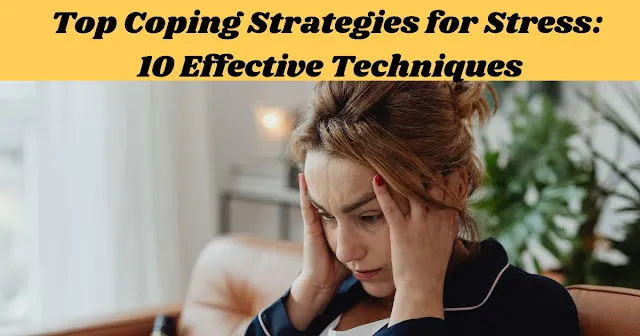Last updated on February 7th, 2026 at 10:32 am
Key Takeaways
- Identify stressors and practice healthy coping mechanisms.
- Engage in regular physical activity and maintain a nutritious diet.
- Seek support and professional help when necessary.
Understanding Stress
- Acute Stress: Short-term stress triggered by specific events.
- Episodic Acute Stress: Frequent episodes of acute stress.
- Chronic Stress: Long-term stress resulting from persistent issues.
While stress can serve as a motivator, chronic stress can lead to serious health problems, including anxiety, depression, heart disease, and digestive issues.
Importance of Learning to Cope with Stress
- Mental Health: Effective coping strategies can prevent anxiety and depression.
- Physical Health: Chronic stress can weaken the immune system and exacerbate physical ailments.
- Productivity: Managing stress helps maintain focus and performance in personal and organizational settings.
According to the American Psychological Association, chronic stress can significantly impair cognitive functions and overall quality of life, making the implementation of coping strategies critical.
10 Ways to Cope with Stress
1. Practice Mindfulness and Meditation:
2. Engage in Regular Exercise:
3. Maintain a Healthy Diet:
4. Build a Support Network:
Strong relationships with friends and family provide emotional support and diverse perspectives, helping to mitigate stress.
5. Establish Good Sleep Hygiene:
Ensuring adequate sleep is crucial for stress management and overall health. Aim for 7-9 hours of quality sleep each night.
6. Limit Stimulants:
Reducing caffeine and alcohol intake can prevent exacerbation of stress and anxiety.
7. Develop Time Management Skills:
Prioritizing tasks and setting realistic goals can help prevent feelings of being overwhelmed.
8. Engage in Creative Outlets:
Hobbies and leisure activities provide a distraction and emotional release, helping to alleviate stress.
9. Seek Professional Help:
If stress becomes unmanageable, consulting with a mental health professional can provide tailored strategies and support.
10. Focus on Positive Thinking:
Coping Strategies in Organizational Behavior
- Foster a Supportive Environment: Encourage open communication and create a culture where employees feel safe sharing concerns.
- Offer Flexible Work Arrangements: Flexibility in work schedules can help employees manage their work-life balance effectively.
- Provide Resources: Access to counseling services and stress management workshops can equip employees with necessary coping skills.
Solution-Focused Coping Strategies for Stress
Solution-focused coping strategies involve identifying controllable aspects of stress and taking actionable steps to address them. This approach encourages setting realistic goals and focusing on achievable outcomes, which can enhance motivation and reduce feelings of helplessness.
Recognizing Negative Coping Strategies
While some coping mechanisms can be beneficial, others can be detrimental. Negative coping strategies for stress include:
- Substance Abuse: Using alcohol or drugs to cope can lead to addiction and further health problems.
- Avoidance: Prolonged avoidance of stressors can exacerbate feelings of anxiety and depression.
- Emotional Eating: Overeating or undereating in response to stress can contribute to long-term health issues.
When to Seek Help for Stress
- Persistent feelings of sadness or anxiety.
- Physical symptoms such as headaches or stomach issues.
- Withdrawal from social activities or decreased interest in daily tasks.
Consulting with a mental health professional can provide tailored strategies to manage stress effectively and improve overall well-being.
Conclusion
In conclusion, mastering coping strategies for stress is vital for a healthier life. By incorporating techniques such as mindfulness, exercise, and building a support network, you can effectively manage stress and improve your overall well-being. These strategies not only help alleviate stress but also foster resilience in the face of life’s challenges. Remember, seeking help when needed is important taking that step can lead to a brighter, more balanced future.


